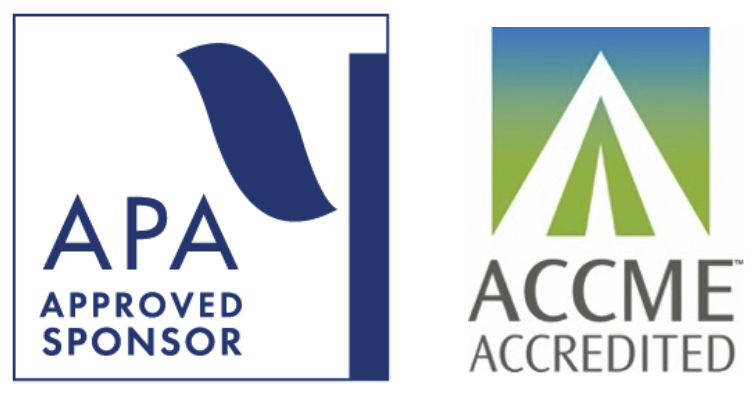| Course Title: | Klein and Early/Mid-Century Kleinians |
| Dates: | March 29; April 5, 19, 26; May 3; 10, 17, 24, 31, 2024 |
| Time: | 9:45am – 11:15am |
| Location: | San Francisco Center for Psychoanalysis 444 Natoma Street San Francisco, CA 94103 |
| Instructor: | Michael K. Smith, PhD |
| CME/CE: | 10.5 CME/CE credits are awarded for this seminar |
The panoply of ideas introduced and developed by Melanie Klein and her contemporaries is remarkably diverse and extensive. Since it would be impossible to engage in a thorough consideration of all of them, we will focus on a number of important papers by Klein that reflect the arc of her thought and her contributions to psychoanalysis. In choosing the remaining papers I have attempted to achieve a balance between a number of factors, including: 1) the extent to which the paper makes an important contribution to Kleinian thought and its development over time; 2) the extent to which it reflects an important sensibility on the part of the author that is of general interest and that makes the paper important in its own right; and 3) the extent to which the paper gives an informative, Kleinian view of a central topic within psychoanalysis (e.g., transference, countertransference, technique).
The overarching goal of the seminar is to provide an opportunity for us as a seminar group to develop our understanding of the most important ideas and methods that Melanie Klein and her immediate circle introduced into the psychoanalytic discourse during the middle part of the 20th century and to develop our understanding of their clinical usefulness. I hope that by the end of the seminar you will be in a position to judge whether and how to incorporate these contributions into your personal integration of psychoanalytic theory and technique, and to understand more recent developments in Kleinian thought.
Educational Objectives:
Upon completion of this course, the learners will be able to describe:
- Melanie Klein’s rationale for her modification of Sigmund Freud’s Oedipal theory and her assertion that Oedipal psychodynamics are present in the first two years of life.
- Melanie Klein’s concept of the paranoid-schizoid position and its relevance in patients’ lives and in clinical work.
- Melanie Klein’s concept of the depressive position and its relevance in patients’ lives and in clinical work.
- The mediating role of unconscious phantasy in emotion, cognition, and behavior.
- The role of symbol formation in psychic development and cognition.
- The way that pathological organizations of the psyche, as conceptualized by Kleinian thinkers, reflect an attempt to maintain a third position that avoids the characteristic anxieties of the paranoid-schizoid and depressive positions.
- Paula Heimann’s reconceptualization of countertransference as useful in understanding the patient’s psyche rather than an obstacle in the psychoanalytic process.
- The way that Klein’s writings on envy and gratitude represent an integration and extension of her earlier ideas.
- Four general areas of Klein’s theorizing that have generated ongoing interest and further scholarship by more contemporary writers.
Accreditation Statement for CME/CE Sponsorship and Disclosure Statement

IMPORTANT DISCLOSURE INFORMATION FOR ALL LEARNERS: None of the planners and presenters for this educational activity have relevant financial relationship(s)* to disclose with ineligible companies* whose primary business is producing, marketing, selling, re-selling, or distributing healthcare products used by or on patients.
*Financial relationships are relevant if the educational content an individual can control is related to the business lines or products of the ineligible company.
—Updated July 2021—
PHYSICIANS: This activity has been planned and implemented in accordance with the accreditation requirements and policies of the Accreditation Council for Continuing Medical Education (ACCME) through the joint providership of American Psychoanalytic Association and San Francisco Center for Psychoanalysis. The American Psychoanalytic Association is accredited by the ACCME to provide continuing medical education for physicians.
The American Psychoanalytic Association designates this Live Activity for a maximum of 10.5 AMA PRA Category 1 Credit(s)™. Physicians should claim only the credit commensurate with the extent of their participation in the activity.
PSYCHOLOGISTS: The San Francisco Center for Psychoanalysis is approved by the American Psychological Association to sponsor continuing education for psychologists. The San Francisco Center for Psychoanalysis maintains responsibility for this program and its content.
Psychologists attending SFCP events approved for CE credits may report AMA PRA Category 1 Credit(s)™ toward their CE requirements. Psychologists self-certify the number of hours they have completed on their renewal form (whether online or paper).
LCSWs/MFTs: The San Francisco Center for Psychoanalysis is a continuing education provider that has been approved by the American Psychological Association, a California Board of Behavioral Sciences recognized approval agency
Psychologists, Social Workers, and Marriage and Family Therapists will be awarded AMA PRA Category 1 Credit(s)™ on an hour for hour basis; see the program description for the maximum of credits awarded for each program.
Commercial Support: None
